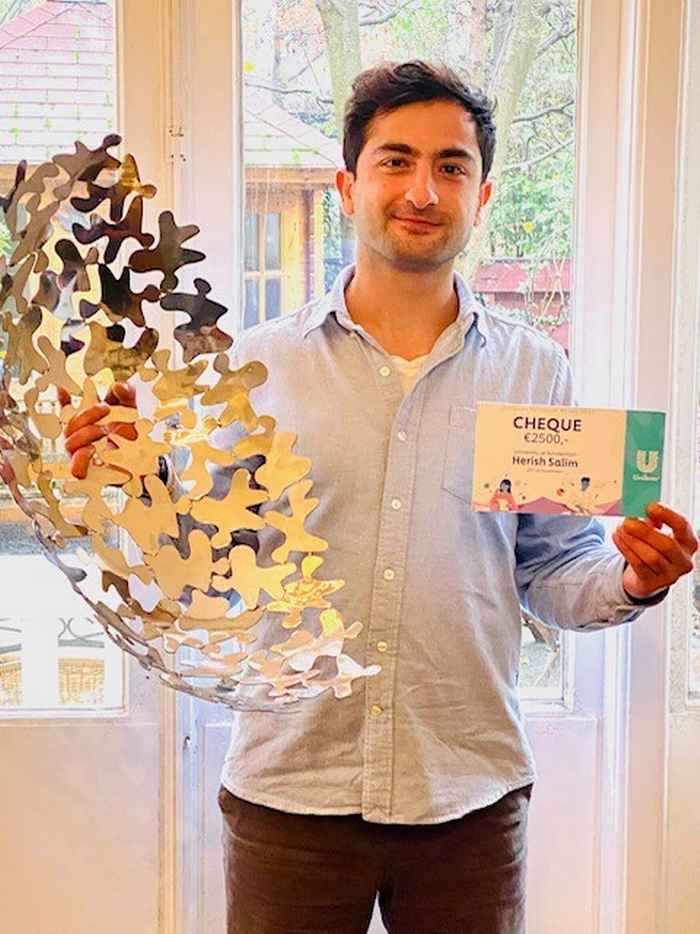Herish Salim wins Unilever Research Prize
2 December 2021

Salim did his award-winning work in the Soft Matter Group of the UvA Institute of Physics, under the supervision of Noushine Shahidzadeh. He received the prize during an online ceremony on November 25th. The prize consisted of a cheque of €2500 and a special artwork bowl, which symbolises the collaboration that is needed between industry and science to face global challenges together,
The ceremony marked the 65th year of the annual Unilever Research Prizes. A total of 13 Master of Science students received the prize, one for each university in the Netherlands. The students were nominated by their respective universities for their exceptional research work.
Unexpected dynamics of salt crystalization
Simple kitchen salt still holds a large number of surprises. The crystallization of salt from an evaporating aqueous solution does not always form the neat cubic crystals that we are all used to. The thesis of Salim, entitled ‘Self-lifting NaCl crystals’ has unveiled two major surprises in the crystallization of salt that have led to a large recognition of this work worldwide in the form of media attention, invited conference lectures and more.
First, if salt water is in contact with a surface, salt crystals can ‘creep’ up even if the surface is vertical. This can transport salt crystals over macroscopic distances, and the salt ‘Christmas trees’ that resulted from salt creeping up a cylinder made the front page of NRC Handelsblad. A publication, of which Salim is the second author, appeared in the top journal Science Advances and explains the mechanism behind this: salt crystallizes at the contact line that is in contact with the surface, and forms a small crystal on the surface. Since the solution wets the crystal, the liquid advances over the crystal and can form a new crystal ahead of it.
A second surprising result was that if a drop of salt water is evaporating on a water-repellent surface, macroscopic crystals of salt that form from evaporating drops of aqueous salt solutions can spontaneously lift themselves up and away from a hydrophobic surface. This was published with Salim as a first author, in the top journal Journal of Physical Chemistry Letters, and also attracted considerable media attention.
Outstanding work
Manfred Aben, VP Science & Technology Foods & Refreshment and Site Leader for Hive, hosted the awards. He commended Salim and the other students for their simply outstanding work and said they should feel very proud of their achievements . “Seeing the kind of talent coming through yet again this year inspires hope for a bright future. You have the ability to make a very real difference in the world as we strive to overcome the many global challenges we face. That is very special.”
“We know breakthroughs and advances in science and technology are the only way we can tackle these issues. That’s why it’s so important to nurture young talent like you. That’s what today is all about. Congratulations to you all,” Aben added.